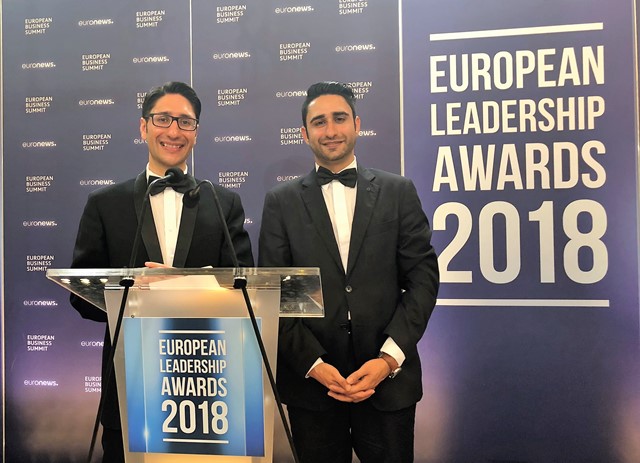By Max Mohammadi
The human body is like an automobile. Much like a car, the body is a complex “system” where issues can be diagnosed based on symptoms. However, unlike automobiles, we are not outfitted with sensors and warnings – meaning potentially fatal issues can go undetected for months, sometimes even years. In many heart-related cases there are no expressive symptoms, and most people are not aware they already have coronary artery disease. Unfortunately, this can result in premature death and in many cases costly and invasive procedures, such as angiography operation or coronary artery bypass surgery.
Sadly, this was the case for my grandmother, who by all standards was a healthy woman. Unbeknownst to her and our family, her heart was a ticking time bomb which went off far too soon. Deeply saddened by this unexpected turn of events, my brother and I were determined to find a viable way to mitigate the impact of cardiac events. Early on in our research, we learned that doctors would need a tool to help them make more accurate diagnosis. Because unfortunately, the human brain can only correlate a few parameters before making a diagnostic decision, making the current “human approach” to diagnosis somewhat problematic, particularly when the symptoms can be related to other diseases.
During our research, we found out that the main cause of death is the late detection of the disease. We also learned the major costs associated with traditional diagnosis procedures are unnecessary and could be brought down significantly with the right approach.
In response to these findings, my brother and I invented HeartstringsTM, a life-saving technology that leverages the power of artificial intelligence (AI) and our proprietary platform to create a non-invasive, and more importantly, accurate screening and pre-diagnostic tool. Heartstrings uses personal patient data to create a profile that accurately identifies the disease. Essentially, doctors input patient data to our system and the artificial intelligence looks at many parameters to provide an intelligent insight to the doctors and help them make and accurate diagnostic decision. Additionally, because of the nature of our machine-learning approach, Heartstrings becomes smarter over time, making it even more adept at determining the likelihood of the disease. As it learns from similar profiles, it has already achieved a level of accuracy that cannot be achieved by human analysis alone.
In terms of cost, conventional screening methods such as angiography, can be quite costly – ranging anywhere from $1,000 to $30,000 depending on the healthcare provider and where the patient is located. Heartstrings helps patients uncover their condition well before these procedures are necessary. The Heartstrings solution costs as low as $5 per patient and, based on results from two clinical trials of 46,700 patients, is already extremely accurate.
While accuracy in diagnosis is crucial to catching heart disease early, doctors have a low chance of making an accurate diagnosis without extensive tests – which is why the implementation of instruments like Heartstrings is crucial. However, it is also important to note that Heartstrings is not a replacement for doctors; rather our goal is to provide practitioners with a reliable “decision-support” tool that will help them make more informed decisions, put an effective treatment plan in place and ultimately save patients’ lives. Additionally, the technology will also save hospitals valuable time and reduces costs significantly during the diagnosis process.
Disrupting an established industry is not an easy feat. Luckily, we’ve received support from various organization during our journey and on the path to realize our vision of “saving at least one million lives each year”. An example is the Entrepreneurs Organization, where we recently won an award in their Global Student Entrepreneur Awards that was hosted in Toronto. Through organizations like this, my brother and I have been able to connect with likeminded individuals who will one day help usher the new age of medical innovation. Additionally, our success is proof that there is an appetite for innovation on a global scale, and that the healthcare field is only going to continue to advance.
Max Mohammadi is a value-driven leader and visionary social change-maker who has been selected by the Forbes magazine as one of the most influential entrepreneurs and featured on the prestigious Forbes 30 Under 30 list. As an innovator, Max has been awarded more than 70 times and is the youngest ever candidate to receive “European of the Year” in the Innovator category. Some other examples include Leader of the Year Award, Alfred Nobel Diploma, European Youth Award, Entrepreneur of the Year Award, Gold Medal and Best Inventor Award.


